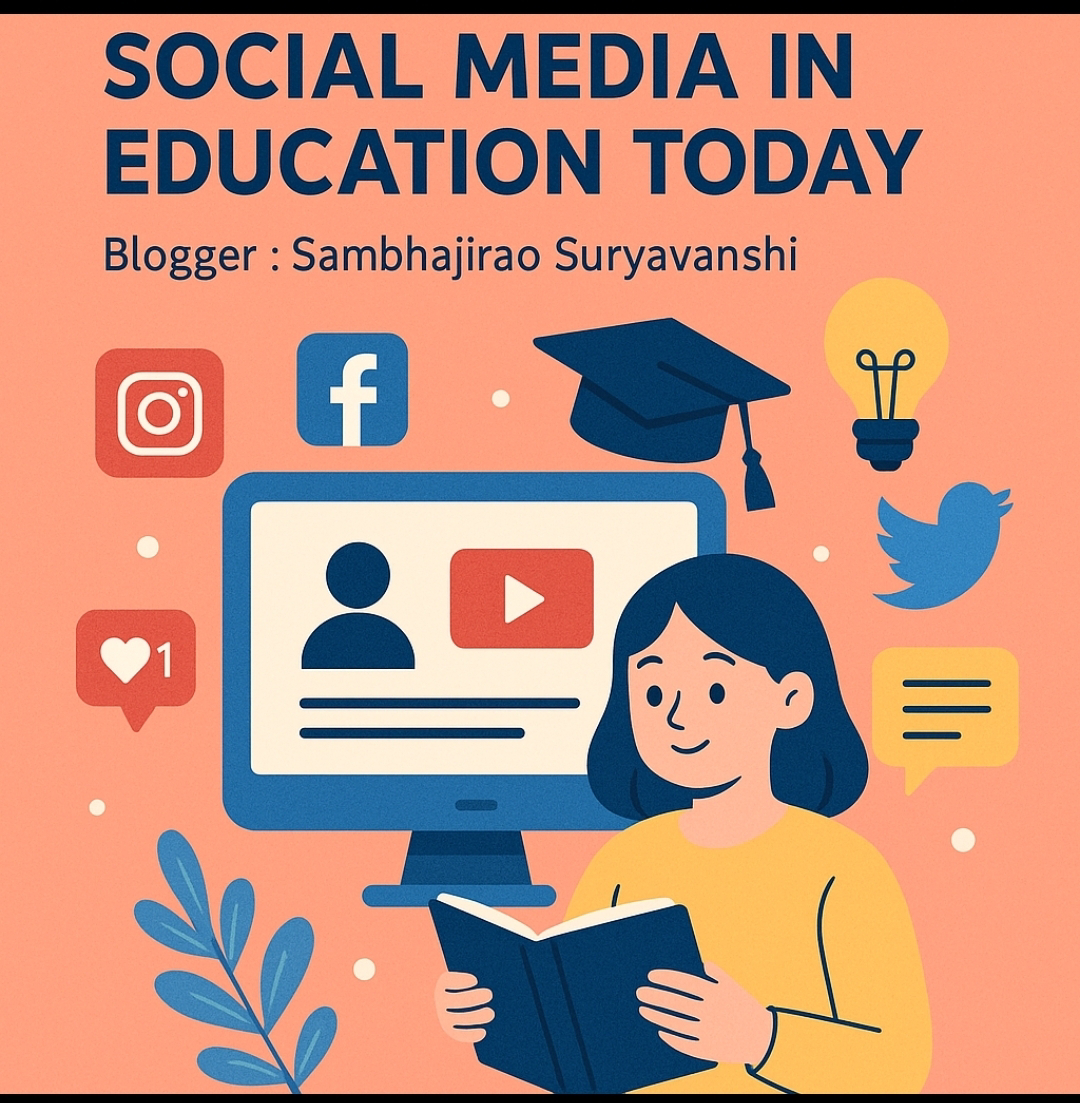The Role of Social Media in Education Today
We live in an era driven by information and technology. In today's digital age, social media is no longer just a platform for chatting or sharing pictures — it has emerged as a powerful educational tool. With YouTube lessons, educational reels, and online discussion forums, the interaction between teachers and students, and the very approach to learning, is evolving rapidly.
1. A Boundless Source of Knowledge-
Platforms like YouTube, Instagram, and LinkedIn offer students easy access to a wealth of knowledge, including:
Subject-specific tutorials, Inspirational talks, Career guidance, English language improvement tips, Personality development content, Recipes, creative skills, and more.
Even students in rural areas now have the opportunity to learn subjects like science, technology, math, and English — right from their homes.
2. Seamless Student–Teacher Communication-
Through tools like Google Classroom, WhatsApp, and Facebook Groups, educators can:
Share assignments, instructions, and important updates instantly. Allow students to ask questions at any time, Encourage group discussions among peers, Share recorded lectures that can be revisited multiple times. This enables learning to continue beyond the four walls of the classroom.
3. Creative Learning and Self-Expression-
Social media fosters creative, student-led learning. Students are encouraged to create their own educational content — such as videos, infographics, and blogs.
With tools like Canva or platforms like Instagram, even complex topics can be explained in simple and engaging formats.
Storytelling, short videos, memes — all make learning more enjoyable and effective.
4. Global Opportunities-
Social media opens doors to the world stage. Students can now access:
International webinars, Free online courses, Global study groups and academic communities
These experiences broaden their horizons from local to global, and even provide job opportunities beyond borders.
5. Need for Discipline and Digital Literacy-
While social media can be a powerful educational ally, it also brings certain risks:
Distractions during study time, Exposure to false or incomplete information, Lack of cyber safety and ethical behavior online.
To address this, schools must include digital literacy and responsible online behavior as part of the curriculum.
Conclusion-
When used wisely, social media can become a strong pillar of modern education. It helps students learn faster, stay connected, and think more broadly. The key lies in balanced and mindful use, turning these platforms into meaningful learning spaces.








1 Comments
Veey good
ReplyDelete